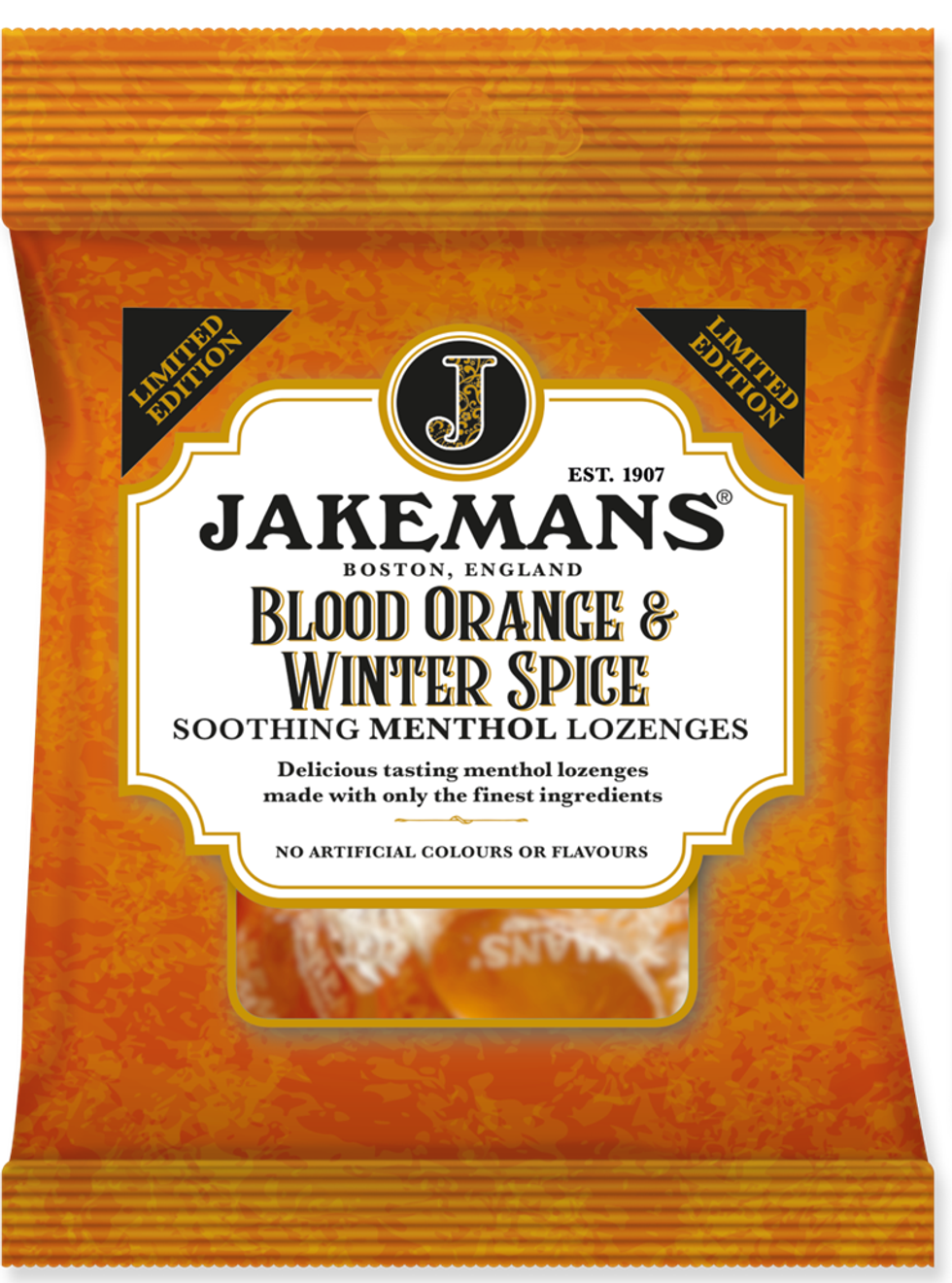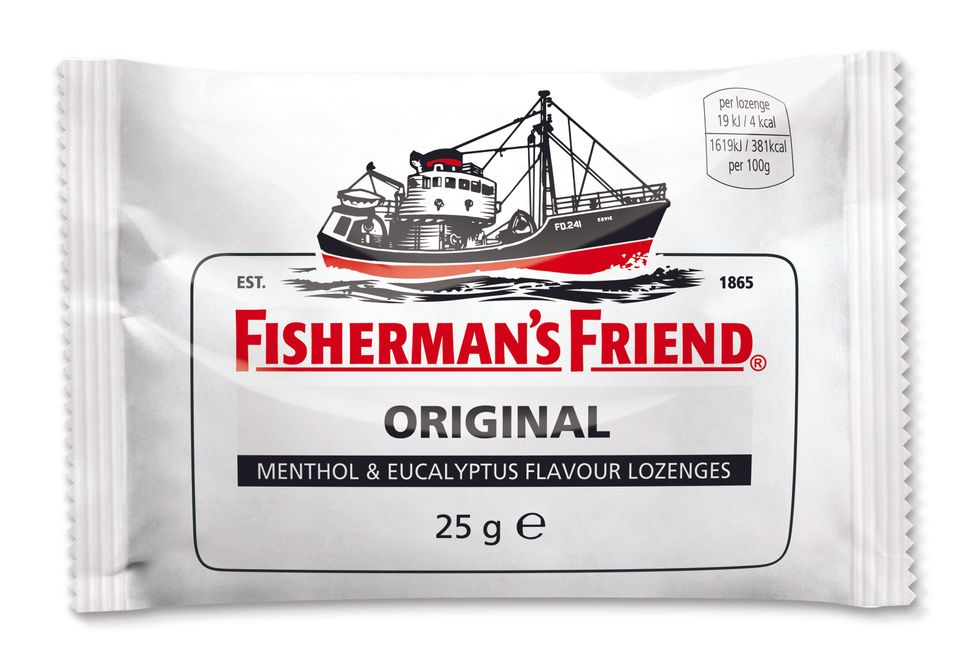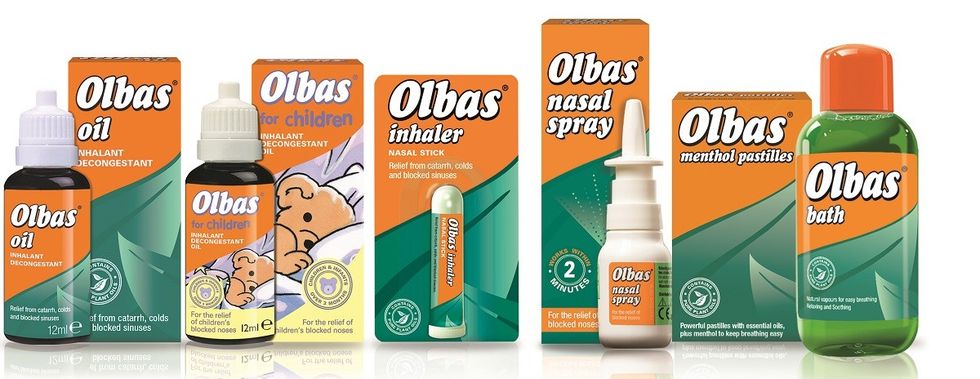In recent years community pharmacies, meaning prescribing establishments run by qualified pharmacists, have been facing increasing economic pressures. Recent analysis by the National Pharmacy Association (NPA) found the number of closures to be nearly 50 per cent higher this year than last, with 177 pharmacies closing between January and April 2024 (it was a mere 116 in 2023). That shocking figure means that on average 10 high street, village or estate pharmacies are shutting up shop every week – over 500 a year.
What this disaster means for convenience stores is that another function of the “Swiss Army Knife” local store model is being added to the community role of the independent retailer.
Of course, indies cannot prescribe (unless some forward-thinking entrepreneur decides there could be a good business case for setting up a small licensed dispensary alongside the slushie machine and food-to-go counter...) but much of the business lost when pharmacies close is the range of non-prescription pills, potions, creams, lozenges and accessories that go to make up a significant portion of traditional pharmacy turnover. That retail-shelf real estate will be increasingly up for grabs and convenience should be ready to accommodate it.
Of course, it was during lockdown that OTC sales of medicines and health products first began to shoot up in the c-channel. Indies were often the only shops left open for long periods, and at the same time the public became increasingly focussed on their symptoms, which was understandable.
Now the pandemic has gone, but the health concerns remain, and a habit has been formed. Couple that with fewer dedicated drugstores and an ageing population that naturally suffers more ailments, and the remedies and pain meds a c-store can offer suddenly seems a very important and interesting shelf to stock and add to. Especially over winter when we all get ill.
Preparing for the cold(s)
Elizabeth Hughes-Gapper, Jakemans Senior Brand Manager, says that demand for OTC products can be attributed to the number of cold, flu and COVID-19 symptoms that people regularly experience, “as 39 per cent of the public have suffered with these symptoms between two and three times in the past year”.
She points out the vastness of the market: 93 per cent of people have purchased OTC products within the past 12 months and over one third (36 per cent) of people buy them several times a year.
Matt Stanton, Head of Insight at DCS Group, explains that there are three or maybe four key Winter Medicines categories that symbols and independents should be sure to stock up for.
Adult pain remedies is the largest year-round demand that shoppers have, with a peak in the colder weather of course, and an annual value of £45.5m (+2.6 [per cent YoY). It is followed by treatment for coughs, colds and flu specifically, and is the big one over the winter months, worth £34.8m and up +5.3 per cent in revenue compared to the previous year. After that, children’s medicines – your Calpols and so on – are worth £12.5m over the counter in c-stores, and from all these figures it is easy to see that not only is the category a significant one, but that it continues to grow, sadly partly at the expense of the community pharmacy sector.

"It’s also worth bearing in mind digestive health," adds Stanton. “Whilst not typically thought of as a ‘winter medicine’, it is a particularly important category through the festive period, and for people taking winter sun breaks abroad.” Digestive health is quite significant, with £17.7m sales per year – again, up on the year before (+6.3per cent).
He notes that value is performing ahead of volume (on average down slightly), driven by inflation over the past 12 months, as is the case across the majority of the grocery market, but the category is robust, and he points out that with many people still struggling to get doctors' appointments, shoppers will continue to resort to self-care for minor illnesses over the winter.
Also, price is quite inelastic compared to other categories: “Medicines shoppers who are ill and in distress are looking for a product they can trust to do the job. These shoppers are generally less price-sensitive, they trust brands as the experts, and they will buy from you if you have the top-selling products in your range," says Stanton.
Fisherman’s Friend Regional Business Manager, Jon R White, agrees. He says that despite inflation finally slowing, we’re still in a cost-of-living crisis, and that shoppers are continuing to pull back spending where they can whilst seeking out value for money when they do have to make purchases. “What makes the Winter Remedies category unique is that there are key moments when shoppers really do need what’s on offer, particularly when they’ve been struck down with a dreaded cold or flu,” he says.
According to Stanton, medicines shoppers are extremely brand loyal because they see brands as the experts who produce products that can be trusted to get the job done. Whereas other grocery categories are seeing shoppers trading down to cheaper private label products, shoppers are less likely to do this on medicines.
Elizabeth Hughes-Gapper underlines this, saying, “Independent traders can compete with multiples by ensuring they’re stocking brands that consumers trust. Consumers hold expertise, trust and reputation highly when it comes to choosing branded products.”
Brands are key, but also don’t underestimate sales from trusted generic molecules, adds Stanton: “Most retailers should stock own-label paracetamol and ibuprofen products alongside the leading brands (Nurofen, Anadin and Panadol), especially those looking to attract larger top-up missions,” he says.
He reveals that the biggest driver of medicines category growth in convenience stores over the past 12 weeks has been penetration. Therefore, “Retailers stocking a full range covering all the core shopper needs will benefit from this continued trend over the coming weeks,” as we slide into the colder months.
Soothing solutions
Jakemans has been around for over a century and as a result understands the market extremely well. Hughes-Gapper says that winter remedies present a significant opportunity for independent retailers, “particularly as demand for OTC products remains high this year and has continued to increase into 2024. We know that 93 per cent of people have purchased these products within the past 12 months and over one third (36 per cent) of people buy OTC products several times a year".
She says that looking towards the future (given that 80 per cent of people have suffered from a cough and 72 per cent from a sore throat in the past 12 months), “it will be essential for traders to stock a variety of products that help consumers prepare for winter ailments, such as throat lozenges. With the NHS advising patients experiencing common winter ailments to self-medicate, retailers should ensure that trusted brands that help ease symptoms are part of their customer offering. By stocking a range of remedies, independent retailers can maximise their seasonal sales. Through winter, menthol lozenges – such as Jakemans – are a vital product to stock. Jakemans uses only the finest ingredients to provide menthol lozenges with a soothing vapour action to ease sore or tickly throats and keep airways clear."
Lozenges such as those made by Jakemans sell at the sweet spot where the attractive taste of the confectionery aisle blends with the therapeutic value of symptom-alleviating lozenges and OTC remedies. Having the best tasting, attractively packaged cough sweets is an essential for c-stores in their druggist role. “Flavour variety continues to be a critical factor in consumer preference, with a growing interest in seasonal and limited-edition flavours," Hughes-Gapper explains. “Retailers should look to brands that can diversify their flavour offerings and introduce innovative combinations to attract a broader audience.”
Jakemans has recently launched a Limited-Edition Blood Orange & Winter Spice flavour to sit alongside its permanent range of soothing menthol lozenges to provide further choice for consumers. While convenience stores can maximise their seasonal sales by stocking a diverse range of remedies, menthol lozenges such as Jakemans are essential for soothing sore throats.
“Year on year, Jakemans remains the No.1 cough / throat lozenge brand," says Hughes-Gapper. “Jakemans alone contributes to 24 per cent market share and overall annual sales in the category which can be attributed to its 100+ year heritage. Brands that have established a strong reputation for expertise and reliability have seen continued demand. All Jakemans products are also sold in shelf ready packaging making it easy to display whether on shelf or at the till.
Stocking Jakemans alongside menthol heavy hitters such as Fisherman’s Friend gives a retailer the artillery to deal with winter’s scratchy throat onslaught.
“Menthol is an ingredient traditionally associated with cold and flu relief, and Fisherman’s Friend offers one of the highest levels of menthol in any lozenge product (10mg in Original Extra Strong) which, coupled with our relatively low price per pack (RRP: 99p, 25g), continues to resonate with shoppers," says White.
“This has contributed to Fisherman’s Friend sales across total retail hitting £1.94m, making our lozenges the perfect companions to your Winter Remedies fixtures this cold and flu season.”'
White points out that in this subcategory, price still plays a part, “At the moment, shoppers are clearly dividing into two very distinct camps at either end of the premium vs value scale, so it’s the brands sitting in the middle that are likely to feel the greatest pinch this coming winter.
“We are therefore confident that the Fisherman’s Friend proposition and price point will continue to be right in the sweet spot of what many shoppers are looking for.” Fisherman’s Friend also now offers a variety of flavours – but be sure not to neglect the original!
“A massive 55 per cent of our sales still come from our Original Extra Strong product, showing this variant has most definitely stood the test of time,” he reveals.
“The impulse channel remains a significant player in the Winter Remedies market. Fisherman’s Friend continues to be a popular choice, representing 31.6 per cent of value share and 38.8 per cent of volume share — making it a must-stock brand for convenience retailers and the second-highest channel for the brand,” says White, adding that Fisherman’s Friend sales in the impulse channel increased by +25 per cent in 2023.
The same goes for relief candy brand Halls, which has introduced a new visual identity and striking new look to unify the brand’s range and help in driving visibility and shelf standout. Halls is one of those trusted brands and grew by an incredible 32 per cent over the past year – highlighting the importance of brand as a signpost to the category.
Clearing the tubes
Menthol is an almost magical winter solution to blocked noses, and alongside sore throats is probably the major undiagnosed symptom that OTC meds can deal with.
Olbas recently launched a new campaign to support parents in preparing for the wave of sniffles and colds that often accompany the return to school as part of a series of campaigns this autumn and winter season, designed to promote their comprehensive range of congestion relief products.
Recent research, commissioned by Olbas, highlighted the challenges faced by parents during this period. Nearly two-thirds (65 per cent) of parents expect their children to miss school within the first month due to illness, with 42 per cent of parents needing to take time off work to care for sick children. The research underscores the importance of preparation, as over half (55 per cent) of parents express concern about their children bringing illnesses home from school, potentially affecting the entire family.
Therefore, ensuring retailers’ shelves are stocked with trusted health and wellness products is more important than ever. Decongestants are seeing a year-on-year growth highlighting the demand for these types of OTC products to be readily available in retailers and pharmacies. By stocking up on these OTC essentials, customers’ needs will be met as we approach winter.
“Siblings may be more prone to catching something off their brother or sister if they play together, share toys or sleep in the same room,” said Dr Roger Henderson, family GP and spokesperson for Olbas. This means that two or more children may have colds and sniffles at the same time, which can have implications for the parents if one becomes unwell and has to stay at home, with the parent taking time off work to look after them. Children in a family may then get into a ‘rolling roadblock’ or ‘domino effect’ of repeated colds being passed between them over many weeks.
“Retailers should ensure that cold relief products, such as decongestant oils, are a key part of their offering as children return to school. This gives retailers and pharmacies an opportunity to help prepare parents, by shifting their behaviour from distress to planned purchasing, and encourage them to stock up on OTC products they know and trust before the sniffles hit.”
Rachel Anthony, Brand Manager for Olbas, commented: "We’re committed to helping retailers provide families with the tools they need to manage the inevitable sniffles and colds that come with this season."
The Olbas range includes Olbas Oil, Olbas for Children, Olbas Inhaler Stick, Olbas Nasal Spray, Olbas Menthol Pastilles, Olbas Bath and new for 2023, Olbas Breathe Easy Patches, ensuring there is an Olbas product suitable for the needs of all the family.
Meanwhile, Jakemans and Olbas owner Lane’s Health has acquired all distribution rights to Go2, the 100 per cent natural essential oil inhaler sticks. The Go2 brand was founded by Marc Shipman, a father of three, entrepreneur and amateur freestyle wrestler who discovered the impact that essential oils had on his busy life and wellbeing in 2016. Over a 24-month period he researched everything there was to know about essential oils and tested products from all over the globe, until he became an expert in blending.
Determined to bring the proven benefits to as many people as possible, he developed the Go2 inhaler sticks, designed to ensure the quickest effect and easiest access on the go, creating a better day for people and being their go-to mood changer.
Lanes Health will be focusing solely on Go2’s core range of grab ‘n’ go, no fuss wellness products: the Energy Stick, Focus Stick, B.Calm Stick and Sleep Stick - all great impulse skus that would sit perfectly on the ambitious retailers OTC shelves.
“We are delighted to be able to leverage our expertise and established foothold in OTC and herbal remedies to support the growth and acceleration of the Go2 brand through the expansion of the brand’s distribution footprint,” said Aden Kelly, Sales Director of Lanes Health.
Merching the meds
Because price and branding (and loyalty) do play so large a part, despite shoppers buying what their bodies tell them they need to feel better, good merchandising of remedies certainly comes into play as a vital factor.
DCS’s Stanton says that visibility is key because shoppers will reach for a product on impulse.
“We usually recommend medicines are displayed on the main shop floor wherever possible, rather than behind the counter, as this makes them easier for shoppers to find, although we would make exceptions for stores with particularly high levels of shoplifting,” he advises.
“Stocking medicines behind the till creates a barrier to purchase. If there is no option to display medicines on the shop floor, then you should at least make sure they are very visible behind the till and make sure the prices are easy for shoppers to read from a distance. Having to ask the price creates a barrier for some shoppers.”
He says it’s also worth having POS that directs shoppers to the till point from relevant shop-floor categories, such as toiletries or baby care, to make sure they know where to look.
“Convenience stores are seen by shoppers as an essential local service, and interaction with store staff is important for many. The ability to confidently answer basic questions about key products, for example the difference between chesty cough and tickly cough remedies, is likely to be helpful to shoppers and therefore improve shopper loyalty. That said, it’s also important that more complicated questions are signposted to medical experts.
"Ease of purchase is important to customers,” stresses Elizabeth Hughes-Gapper, “meaning retailers should look to place winter ailments remedies in prominent locations to ensure products have the best visibility on shelf – and should try dual siting, for example by displaying menthol lozenges at both the till point and healthcare aisle, to help with convenience and ease of purchase.”
It may be a long winter ahead, but look on the bright side: it’s also a long season of sales for OTC remedies.









